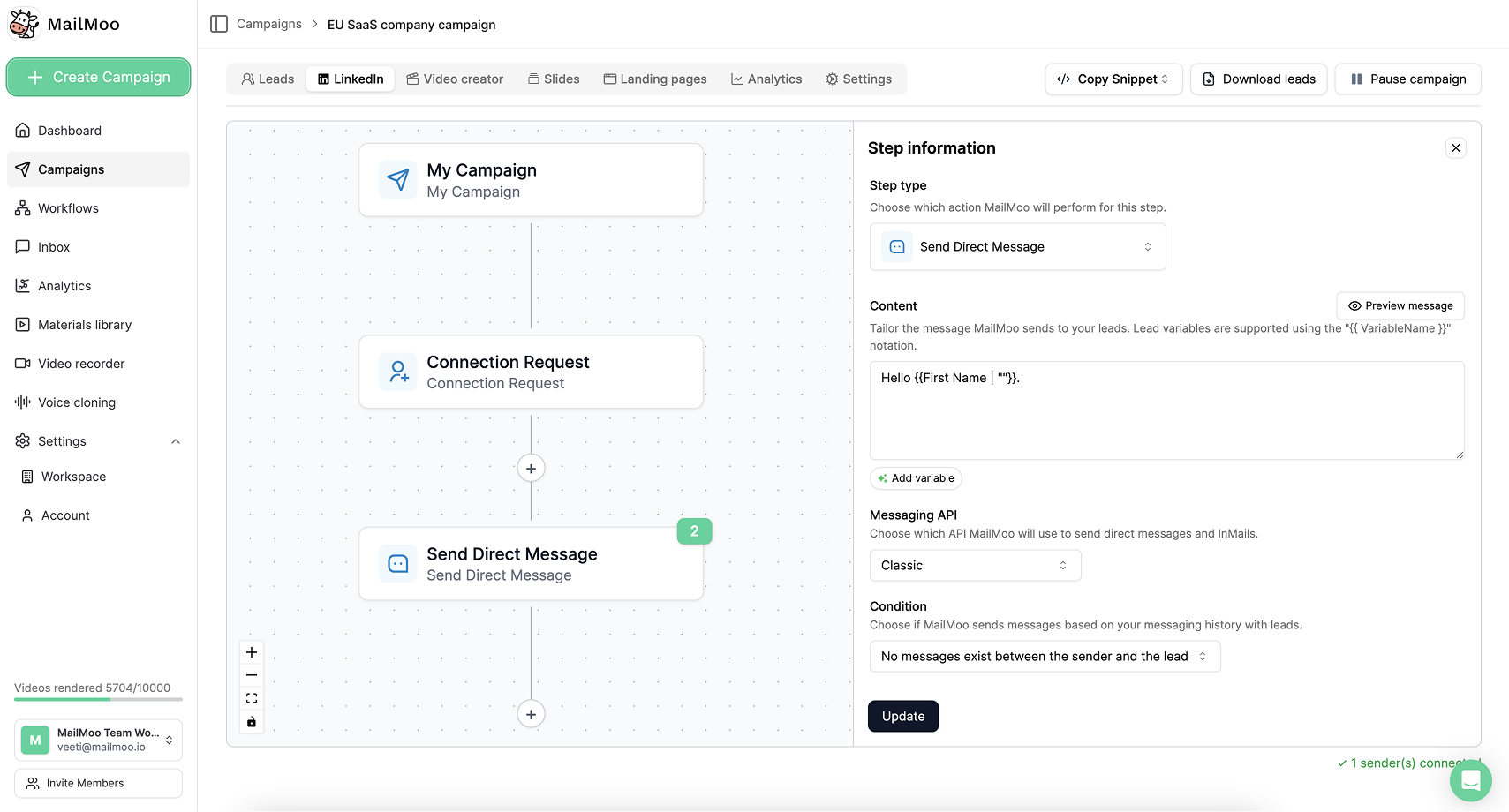Mastering Cold Email Deliverability: A Guide to Connecting with Your Audience
Cold emailing can be a turning point for businesses looking to generate leads, build and maintain relationships, and increase sales. But even a perfectly crafted cold email won't achieve its goals if it never reaches the recipient's inbox.
This is exactly why email deliverability comes into play. In this blog, we'll explore what email deliverability is, why it's so important to your cold email strategy, and the most important factors that can make or break your deliverability.
What is email deliverability?
Email deliverability, in its simplest terms, means the ability of an email to successfully reach the recipient's inbox instead of getting lost in spam or being blocked altogether. It measures how well your emails work through Internet filters and security checks to get them where you want them: in front of your audience.
Deliverability therefore focuses on the placement of the mailbox. A good deliverability rate means that your email is not only being sent, but also being seen.
Why Deliverability Matters in Cold Emailing
Deliverability is especially important in cold email campaigns, and therefore the first impressions of the email are also important. If your mailing doesn't even make it to your recipient's inbox, you're missing out on an important opportunity to bring in potential leads.
Regarding deliverability:
Maximized ROI: A well-delivered email can drive results, but poor deliverability wastes resources by sending emails that are never read. So focus on quality instead of quantity.
Protecting Sender Reputation: Low delivery speeds can damage your domain's reputation, making it harder to reach mailboxes in the future.
Scale efficiently: Deliverability ensures that as your email volume grows, your campaigns continue to work , and are not throttled or blocked by email service providers.
Simply put, deliverability is the foundation of successful cold emailing.
Factors Affecting Cold Email Deliverability
Achieving a strong delivery rate requires a combination of technical expertise and the best tools. Here are the most important factors that can affect the deliverability and effectiveness of a cold email.
Reputation of sender
Email sender reputation is like a trust score that Internet Service Providers (ISPs) use to determine whether your emails are legitimate or spam. Factors such as bounce rates, spam complaints, and the quality of your email list play a big role.
How to improve: Use a verified domain, send emails to clean lists, and verify your email address to avoid high bounce rates .
Content quality
Spam filters evaluate the content of your email for spammy keywords, excessive capital letters and poor formatting. E-mails that overlap too much and look misleading are therefore most likely to be flagged.
Improve quality by writing clear, professional content, avoiding spammy words like "free" or "guaranteed" to ensure a good balance between text and visual content.
Email authentication
Authentication protocols such as SPF, DKIM and DMARC confirm your identity as the sender. If you leave out the appropriate authentication from the email, it will most likely be marked as suspicious. Define the protocols for your sending domain in cooperation with your IT team or email service provider.
Shipping policies
A sudden spike in email sending volumes or sending too many emails at once can trigger red flags for ISPs. Also, sending emails from free domains like @gmail.com instead of your business domain can hurt your credibility.
Improvement: Warm up new email accounts gradually, maintain a consistent sending schedule and always send from a professional domain.
Engagement metrics
ISPs monitor how recipients interact with your emails. If many users delete your emails without reading them or mark them as spam, your deliverability will suffer.
Improve your deliverability by creating personalized and engaging subject lines to get your email content opened and responded to.
List quality
If email lists contain outdated or irrelevant contact information, they can lead to high bounce rates and spam complaints.
Improve the quality of your lists by regularly cleaning your email list. Segment your audience and avoid buying lists from third parties.
Compliance with Email Laws
Regulations such as GDPR, CAN-SPAM and CASL set legal requirements for sending commercial emails.
Include a clear opt-out link in your messages and only send emails to people who have given their consent. Respect and comply with requests to cancel subscriptions or newsletters without delay. Place a clear unsubscribe link at the bottom of your email which helps the recipients make a decision for your newsletters for example.
Conclusion
Improving the deliverability of cold emails is a combination of good practices, consistent monitoring and utilizing the best tools. By following these instructions, you can ensure that your e-mails consistently reach recipients' mailboxes and are read.
Do you want to supplement your cold email campaigns with personalized content that guarantees engagement? Try AI-powered Outreach Video today at MailMoo.io!
